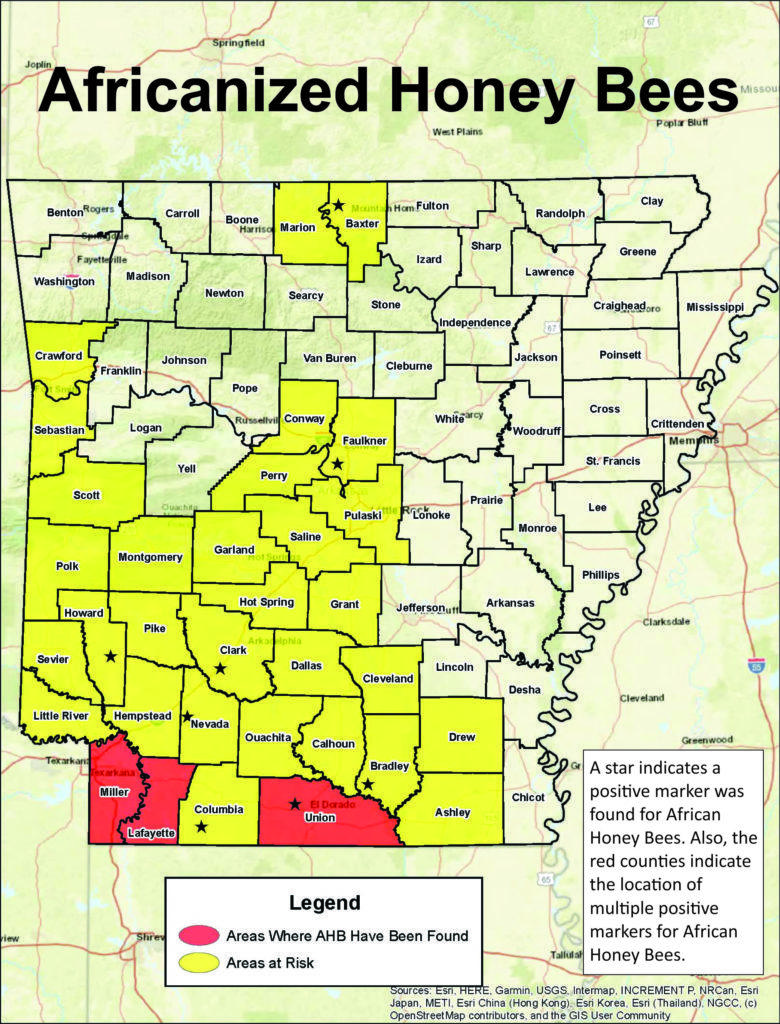Plant Industries
Serving the citizens of Arkansas and the agricultural and business communities by providing information and unbiased enforcement of laws and regulations set by the Arkansas State Plant Board
Agriculture / Plant Industries / Regulatory Section / Apiary
Apiary
Northern Giant Hornet Information - Arkansas Department of Agriculture
Northern Giant Hornet Information: the University of Arkansas Division of Agriculture
Northern Giant Hornet Information: North Carolina State University
Apiary Mission and Methods
The Apiary Division protects honeybees in order to maintain viable honeybee populations for the purpose of pollination in Arkansas. Most recently, there were 4101 active registered beekeepers in the state, with 6776 active registered apiaries with a total of 62,891 colonies. A total of 11,100 colonies were visited last fiscal year.
Methods:
- By equitably administering laws and regulations in order to minimize and slow the spread and negative effects of diseases, harmful pests and unwanted species.
- By educating beekeepers in modern apicultural techniques and the citizens of Arkansas on the importance of honeybees.
Arkansas Apiary Registration Process
- Bee Yard Registration Form (553.27 KB) Please download the form to your computer, fill it out, and hit to submit button to return it to lexie.felton@agriculture.arkansas.gov and zac.wellman@agriculture.arkansas.gov.
- Instructions for Arkansas Bee Yard Registration (129 KB)
- Arkansas Apiary Information Packet (3.42 MB)
- Arkansas Beekeeper Year (708.41 KB)
- Apiary Inspections (9.6 KB)
- Other Laws that Affect Bees and Beekeepers (11.43 KB)
- Apiary Rules and Regulations
- Arkansas Honey Producers (211.69 KB)
Africanized Honey Bees
The introduction of the Africanized bee into Arkansas has been closely monitored by the placement of traps along the Oklahoma, Texas and Louisiana borders. Fifty two traps are currently in Arkansas. Swarm traps are placed in trap lines along the Oklahoma and Louisiana borders, along Africanized Honey Bee (AHB) counties in Arkansas, and in strategic locations. There have been about twenty positive locations verified in Arkansas since 2005. Counties with positive finds include: Miller, Lafayette, Clark, Columbia, Bradley, Nevada, Faulkner, Baxter, Howard and Union counties.

All colored areas were previously quarantined because of Africanized Honey Bees. Beekeepers should use extreme caution when moving or relocating honey bees in these counties.

